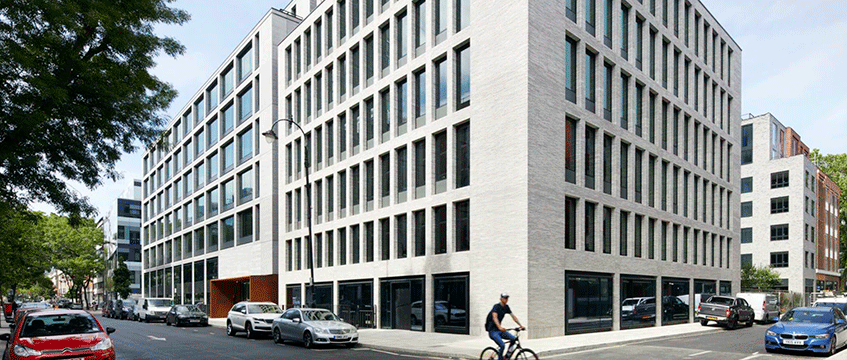Welcome to the latest edition of Sustainability Matters, a regular wrap from EG to make sure that you and your business are up to date with the latest news, views and opinion about all that is important in the world of ESG in the built environment.
The financial benefits and attractions of sustainability were in evidence this week as Savills Investment Management launched a new fund focused on ESG.
Harry de Ferry Foster, co-head of the UK at Savills IM and fund director for the Charities Property Fund, said that the investment manager was ramping up its focus on ESG, food security and onshoring in manufacturing, particularly in new green industries such as electric battery production.
“I think all of these sectors will become much more mainstream,” said de Ferry Foster, adding that ESG investments are “something we see as really growing”. “Covid-19 has only added to that,” he said.
UK investors have pumped £3.9bn into ESG funds since July 2017, according to fund network Calastone, compared with just £107m in the preceding three years.
The ESG investment market already has an estimated £24tn in AUM, accounting for around one-third of all professionally managed assets around the world.
And CBRE’s head of environmental consultancy Julie Townsend is confident investment in ESG funds will continue to grow.
“As a result of this pandemic, individuals, consumers and employees are more aware than ever of the human cost, socio-economic gaps and deprivation that exist across our nation and the world. In turn, we are now more aware than ever that now is the time to be socially responsible.”
ESG funds are weathering the current storm much better than more traditional funds. Calastone’s figures show that during March, when other investment funds suffered billions of pounds in outflows stemming from Covid-19 disruption, ESG funds lost only £17m.
The pitch to investors just keeps getting stronger.
Lenders too are starting to give more favourable terms on loans for ESG-focused real estate projects.
The emergence of this “green premium” is “a clear message to those still dragging their heels on ESG”, said Ian Malden, head of valuations at Savills, as the agency launched its Financing Property 2020 report.
“The gulf between the financing available to projects at either end of the ESG scale is set to rapidly widen,” Malden added. “Those that fail to take heed will at some point face issues accessing finance, resulting in limited options and punitive borrowing terms.”
Big kudos this week has to go to Derwent London for completing London’s first all-electric building at 80 Charlotte Street, W1.
Heating and cooling at the building will be provided by air source heat pumps powered by electricity from renewable sources.
Derwent said that it had monitored the embodied carbon impact throughout construction and that it is estimated to be 28% lower than the RICS Carbon Database average for office buildings. It will offset those emissions using certified schemes, making 80 Charlotte Street its first net-zero-carbon development.
Chief executive Paul Williams said: “We are delighted to have achieved one of our main targets for 2020 with the practical completion of 80 Charlotte Street. This exceptional building, attracting major international businesses, demonstrates the resilience of good office space with adaptable internal areas and a focus on wellbeing and long-term sustainability.”
Hungry for more information? Keep up with all things ESG by visiting EG’s Sustainability Hub











